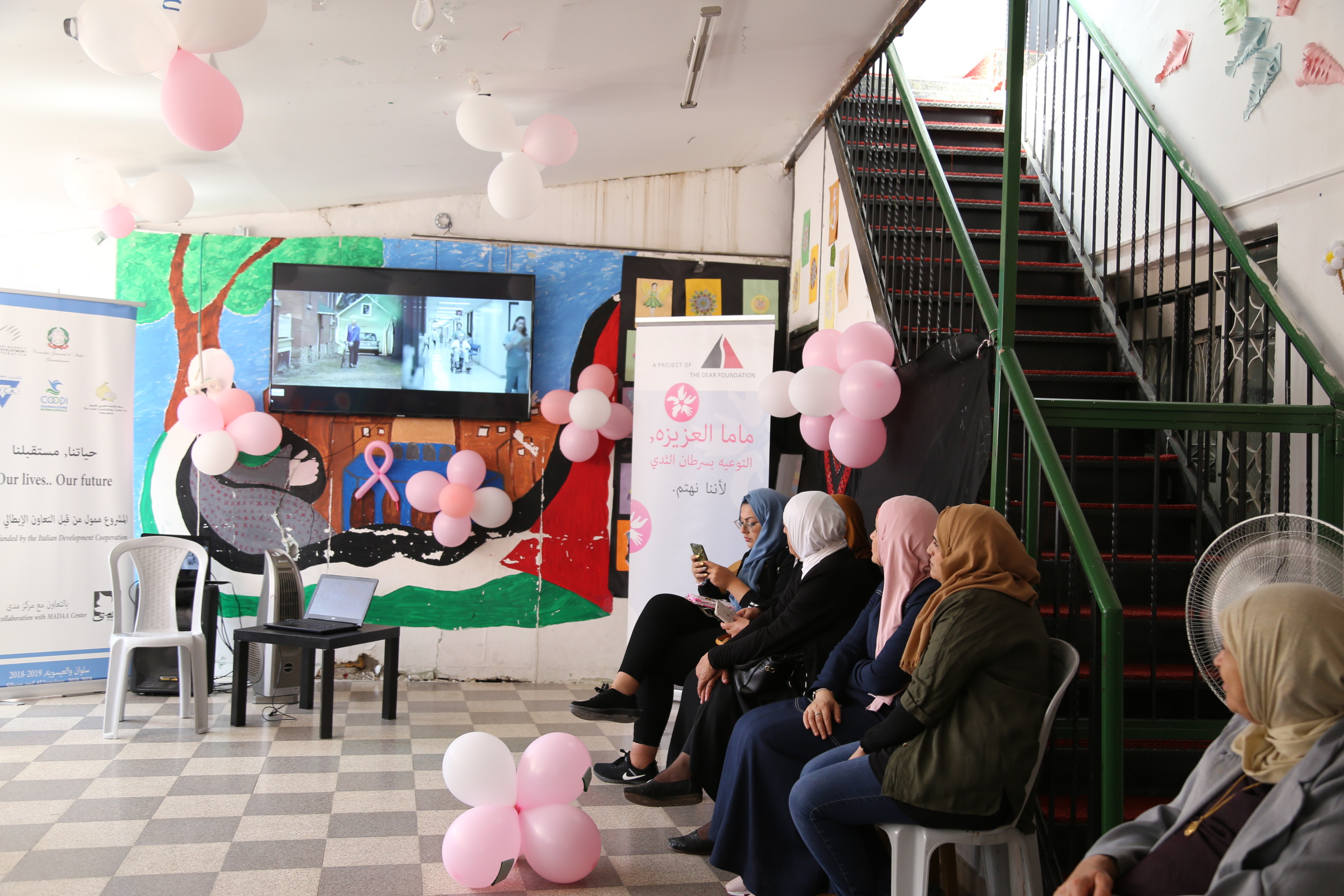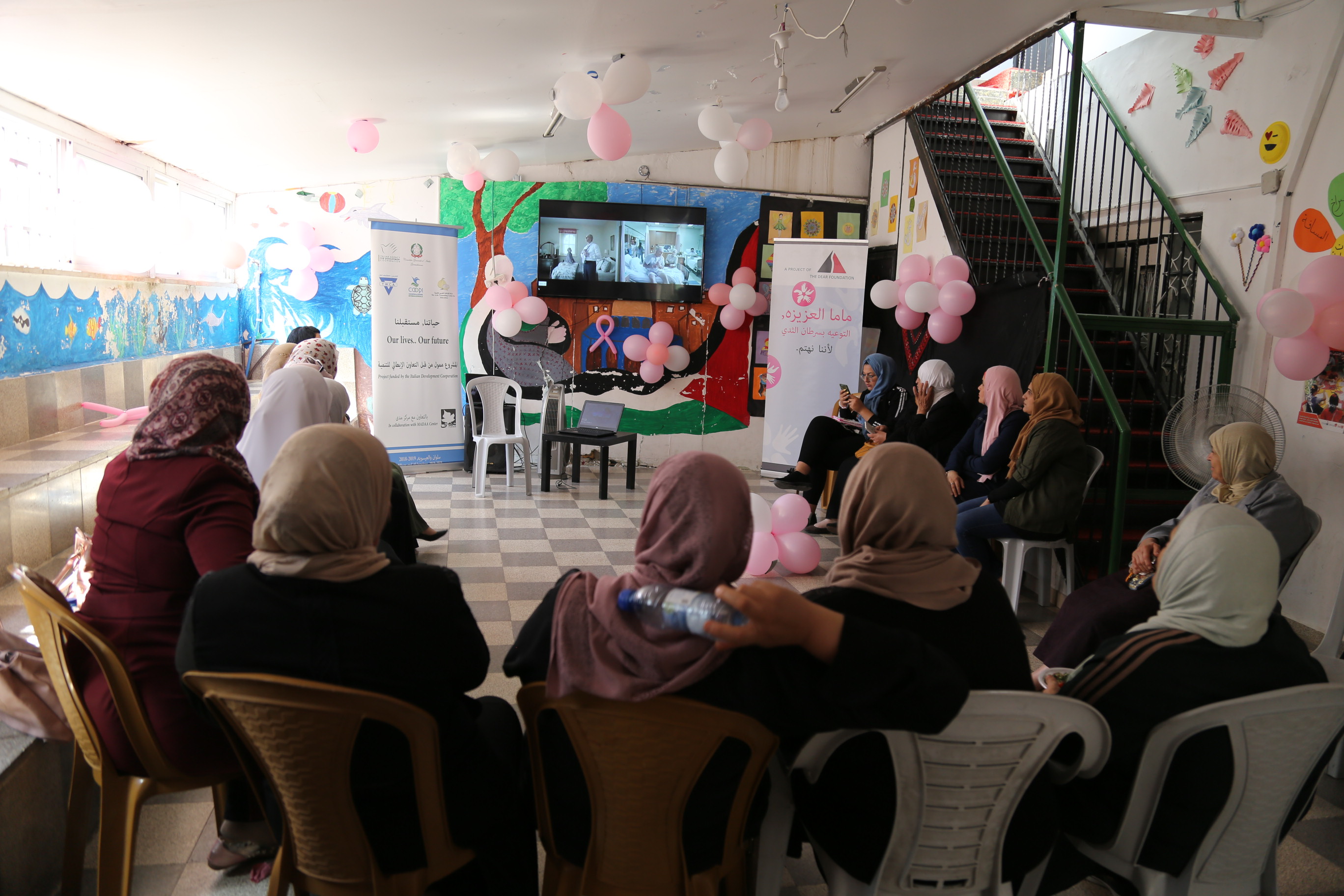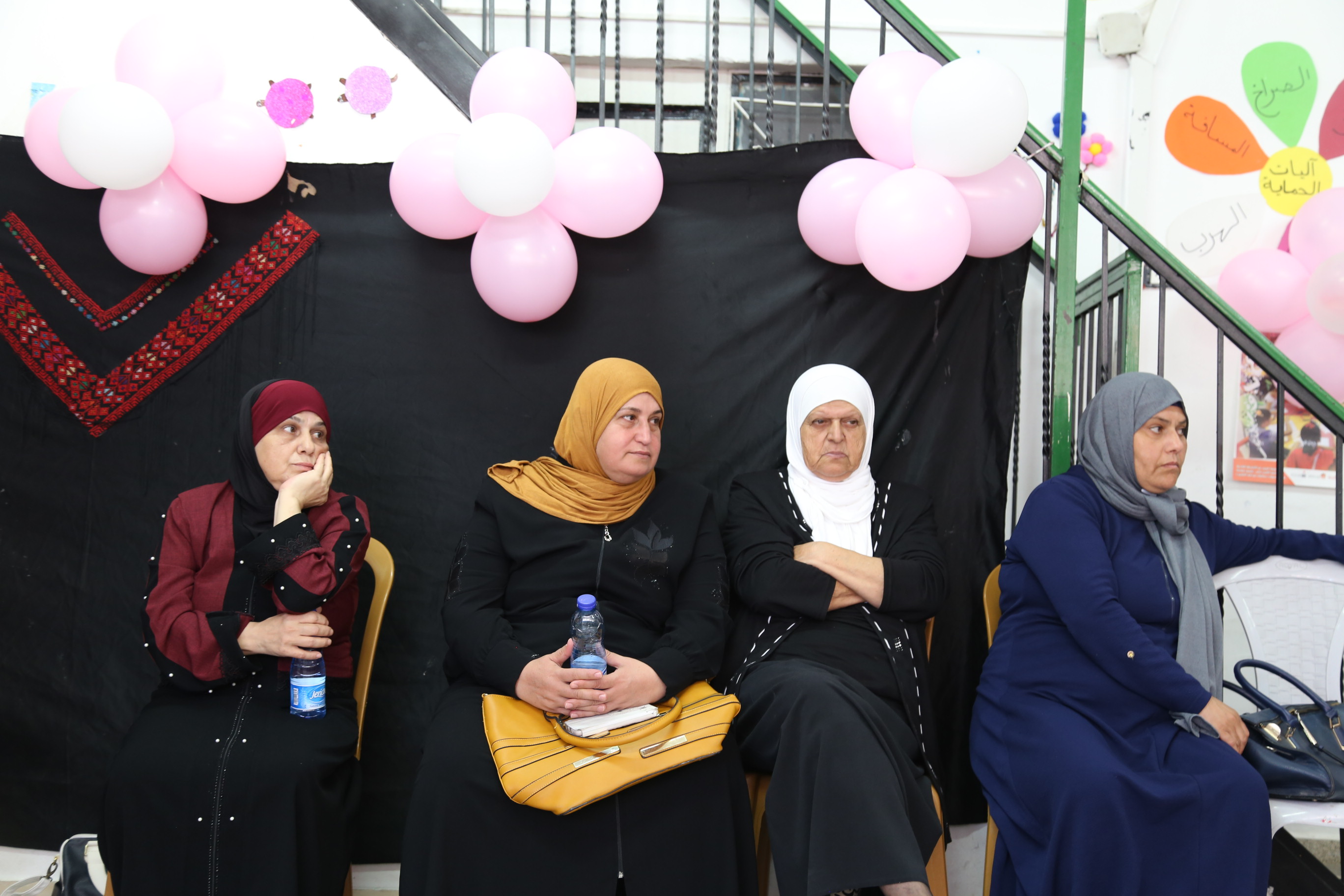Madaa Creative Center - Silwan organized twelve screenings from the collection of films “I am a Palestinian” and other films within the project “Let’s Watch a Movie”, in the presence of dozens of different segments of society, mostly the youth, during the months of September and October of 2019.
Through these cinematic cultural activities, the project seeks to develop the capacity of these community groups in discussions and mutual interactions, to promote freedom of expression, forgiveness, peace and social responsibility by making these groups able to contribute effectively in building a democratic society that respects diversity and human rights, and being actively involved in defining development priorities.
Accordingly, 10 screenings of films from the “I am a Palestinian” series were organized at the Center's headquarters in Silwan in the presence of different segments of society, mainly youth. The first was “Al-Ra’iya” (the Shepherd), directed by Fidaa Ataya, which tells an imaginary story about the areas of “Wadi Al Malih and Ein Al Hilweh” in the northern Valley which are exposed to threats from the occupation, and expresses the lives of Palestinian women who work in grazing and agriculture, who suffer the pain of losing land and water resources.
The audience expressed the importance of women who defend their rights and property against all odds. One of the attendees said: “Hold on to your right no matter how small or large, the right that is demanded is never lost and that the life of a woman is not connected or dependent on anyone, it continues and goes on forever.”
As for the film “The Dead Land” by the director, Amjad Hab Al Reeh, in which highlights the life of two women from Anin village in Jenin who lost their land behind the separation wall and were deprived of its cultivation. The loss of their land led to the loss of their livelihood.
Watching the film provoked a sense of nostalgia for the land and grief over the parting of it. In addition to her suffering caused by the occupation especially that the settlers are trying to bother her and her family until they leave their home. One of the attendees stated that the life we live must be a life of partnership between men and women, where the work in the land is mutual between them even if half of it is lost and only the other half remains. We should not give in to the problems we face in life. This confirms the belief that the earth is like life for us to live on this land that deserves life.
In another movie directed by Maysa Al Sha’er “Sabaya Kilimanjaro” which highlights the challenge of self-discovery through three Palestinian girls who climbed Mount Kilimanjaro in Tanzania as an advert response to the restriction of movement and the difficulty of movement in Palestine. They challenge politics, borders, and society and travel to Tanzania for this adventure. The attendees stressed that the first success achieved by these girls is the distance from society and how they were able to convince their parents to have this experience, and then the obstacle of occupation, movement, military checkpoints and the long waiting, but the challenge of climbing the mountain was not the main obstacle for them after facing a series of difficulties and challenges.
As for the movie “One Day” for the director Asma’ Al Masri, which shows a day in the life of four friends as they share their personal and professional lives in Gaza City, and how they spend their day in a film, showing us the other side of the life of Gaza in all its vitality and diversity away from the spark of war, destruction and division. After the screening of the film, one of the attendees pointed out that the female is the woman of society and that there are many girls who try to spread their thinking out of the walls of siege and stereotypical judgments imposed by society on the girl which robs her from will and determination. Despite that, they had the will and determination to face the social complexities, and challenge the outdated customs and traditions in order to obtain their most basic legitimate rights.
As for the “Koufiya” movie, directed by Afnan Qatrawi which talks about two friends from Gaza whose separation limited their ability to make their movies. They would meet by chance as they photographed some of Gaza's archaeological sites. Keen to highlight the historical heritage of Palestine, they decided to work together to produce the film, but the renewed armed quarrel as a result of revenge against the backdrop of the events of the Palestinian division, limited their ability to work and move safely. At the end of the film, one of them was shot.
One participant from the audience noted: “We as young people should not be divided and should be like one hand”.
Five other films were screened as part of the Palestinian films, some of which are:
The movie “Sard” (Narration) for the producer Zeina Ramadan, which tells the story of two girls dreaming of studying abroad, among the topics of discussion was a question for the audience about the challenges facing the Palestinian youth.
Most of the answers were that we are all under the same occupation, but the methods of psychological torture and abuse towards the Palestinian people vary from one region to another. Therefore, the status of Jerusalem is governed by easier policies at times and the West Bank is less difficult compared to Gaza Strip whose situations are harder than the rest of the regions in Palestine.
In the film “I Wish I Wasn’t a Palestinian” directed by Fidaa Naser which narrated the story of a journalist who wishes to be a non-Palestinian because of the restrictions of the occupation, all of those present rejected her view and one of them said: “We take pride of being Palestinian and will never abandon Palestine”.
As for the film “Waraq Dawali” (Grape Leaves), which tells the story of a Syrian woman who moved to live in Jerusalem, the audience had a question that preoccupied their minds and made them curious. They needed time to understand the moral and meaning behind the movie’s title and its connection to the events of the film. One of the girls explained this, saying that the label came because “Fatima”, the main character, was preparing this food. But another young man responded to her and said that the aim was deeper than that, and that the grapevine in the way it is planted resembles the story of this woman’s life. The grapevine expands and grows and reaches great distances but its roots remain in the place where it was found and planted, and this woman is like the tree, her roots are in Sham where she was born and grew up in even if she got married, moved far away and lived in Jerusalem, her nostalgia and roots remain in Syria and she cannot let go of it.
The film “Yarns of Silk”, which tells the story of Palestinian embroidery and sewing, sparked an atmosphere of joy in the center. Participants from the audience remembered their weddings and those who sewed their wedding dresses, and started chanting old wedding songs to the drum.
In the two films “A Sister and her Brother” and “Figs and Olives” that were screened after the series of the movie “I am a Palestinian” sparked a spontaneous discussion in the movie screening room. These movies were distinguished by being in Jerusalem; they spoke about family social issues between siblings and the relationship between grandparents and their grandchildren and more.
It is worth mentioning that these shows are part of the project “Let's Watch a Movie!” a community cultural partnership project run by the Women's Cinema Foundation in partnership with the Female University Graduates Association and the Sunflower Association for Human and Environment Protection, with the main support of the European Union and the support of the Swiss (CFD) and the International Women's Fund.














